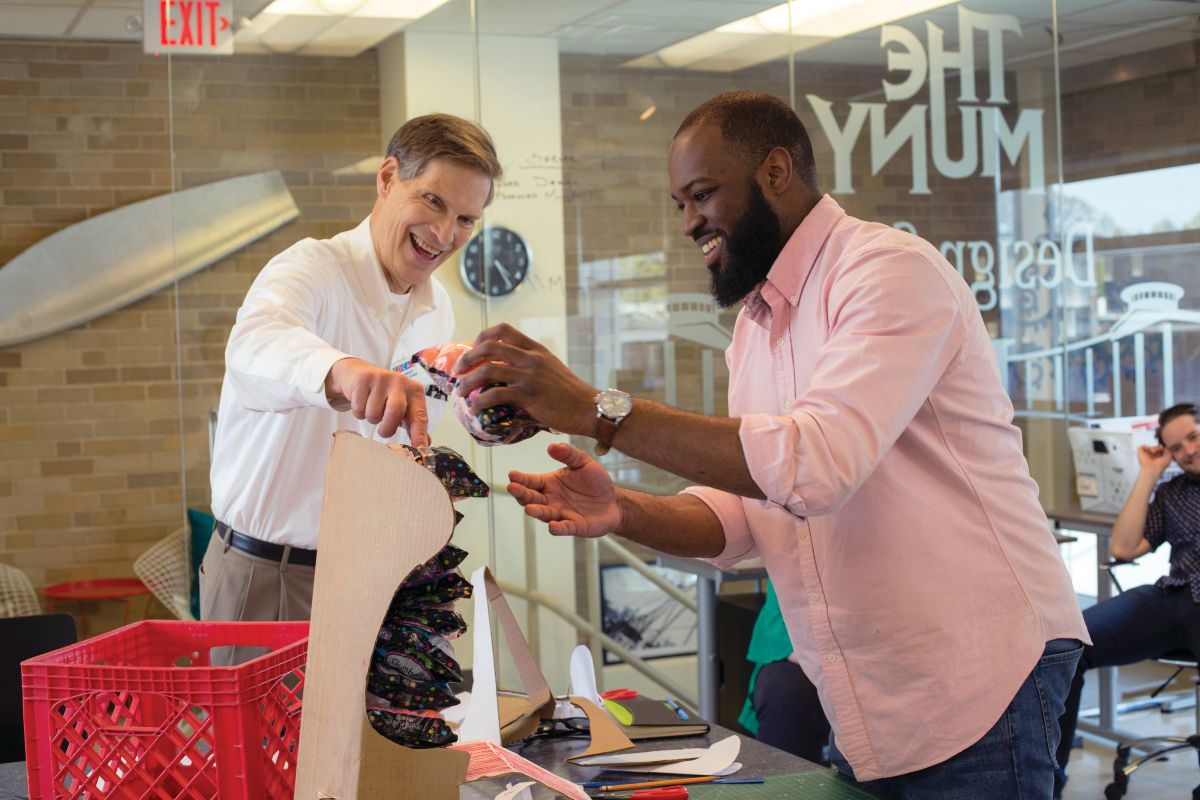From the Barre to the Boardroom: The Power of Arts-Based Learning for Business Professionals
Posted by Sep 12, 2019

Will Bonfiglio
Arts education certainly doesn’t have to (and really shouldn’t) end after high school. At least that’s our belief at COCAbiz, the arts-based business training division of COCA-Center of Creative Arts in St. Louis. COCAbiz provides immersive arts-based training, programming, and consulting for business professionals. We are constantly exploring how to unlock creative energy and build skills to meet today’s business challenges by providing leaders with new tools, techniques, and perspectives from the arts.
COCA’s Executive Director, Kelly Pollock, wrote about COCAbiz for Americans for the Arts back in 2011 (“One Organization’s Journey to Connect Art & Business”), suggesting “businesses might be more innovative and achieve greater success when they give their employees all of the tools that the arts and the creative process have to offer.”
She’s right. As we round out our first decade of COCAbiz, we have learned that arts learning is powerful and needed with business professionals. In a world where automation and technological dependence are becoming the norm, human creativity still reigns as the ultimate competitive advantage.
Through our experiential program design, we are purposefully using the arts to inspire creativity and drive business results. Corporate teams are exploring leadership, collaboration, communication, and other challenges in new and unconventional ways. As a result, we’ve come to find that sometimes putting down the pen and paper and engaging in the arts is what it takes to build stronger teams, spark innovation, and develop a framework for longer-term cultural change.

For example, one client completely changed the way he structured his company’s work environment as a result of a breakthrough he had in our Collaborative Design: Achieving a Common Goal with Design Thinking workshop. After watching his employees work together to collaboratively vision and implement a creative solution tailored to a specific user, he realized the need for continuing this in their workplace. Instead of sitting alone at individual desks and cubicles, staff members were resituated into pods to achieve greater collaboration and innovation.
Another popular workshop is Acting with Awareness: Unlocking the Power of Diversity, which goes beyond traditional diversity training by drawing from Augusto Boal’s theatre for social change. As a result of this workshop, multiple clients have noted a cultural shift in their organizations thanks to new initiatives that purposefully create space for continued conversations around employees’ diverse backgrounds and perspectives.
What’s even more exciting about the program’s progress so far is the variety of stakeholders we’ve grown to serve. The COCAbiz roster ranges from small tech startups to large financial institutions—with a bit of everything in between. The scope of our audience has grown over the years to include nonprofits, ranging from charitable giving foundations to organizations supporting those with disabilities. Annually serving over 1,300 participants, we’ve proven arts-based learning can benefit employees across a variety of fields.
The sheer excitement, curiosity, and artistic expression displayed by participants suggests that more artistic opportunities and creative outlets would be warmly welcomed in the business arena. Most of us engaged in the arts in some way as children, so we know how to do it. It’s just that sometimes we’ve forgotten we know how.

The child-like sense of wonder and desire to play exhibited in these workshops make it clear that today’s business leaders may not be engaging with the arts as often as they’d like. That’s a shame because we’ve learned first-hand that this type of regular, creative play could be just what professionals need to build creative problem-solving and critical thinking skills.
So, the next time an organization’s leadership team is wondering what it will take to reignite creativity across the company, perhaps they should reconsider lengthy retreats and open office layouts. Instead, I challenge them to start simply: play.





